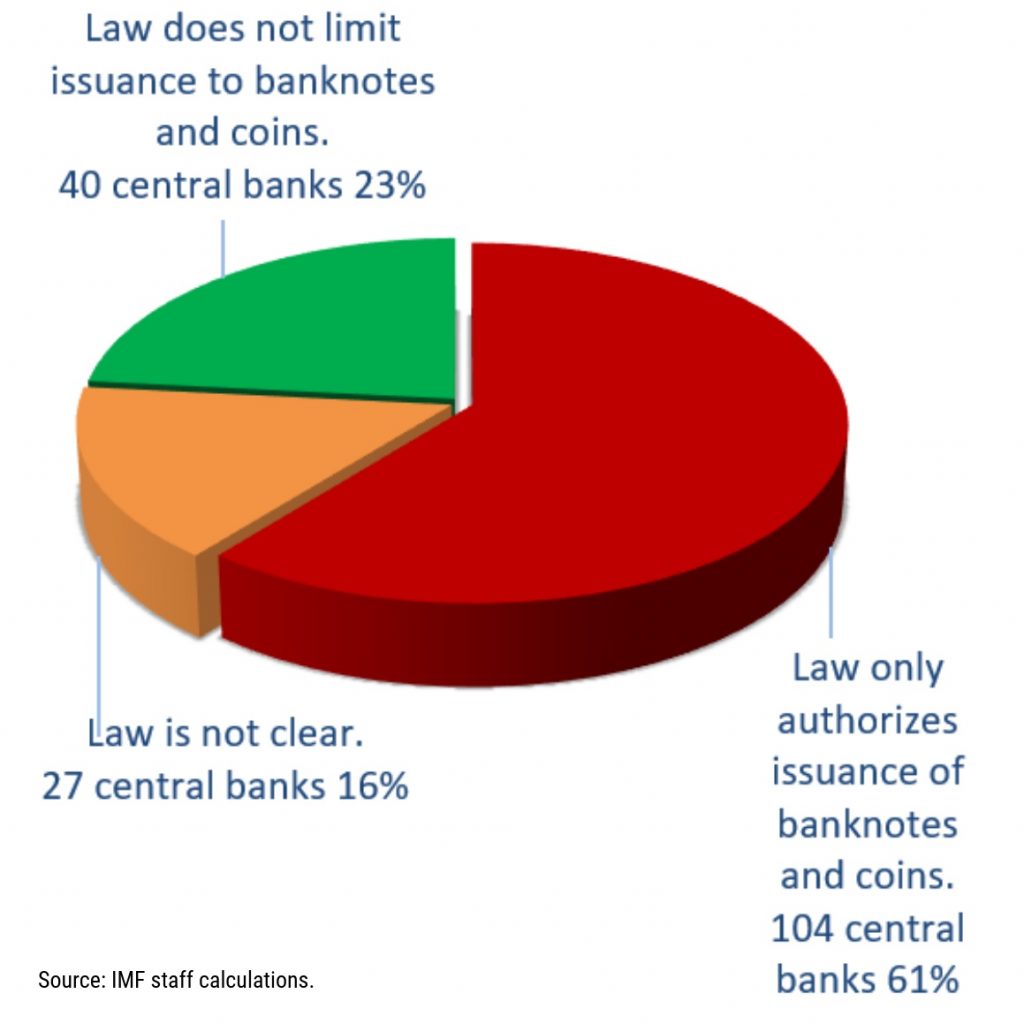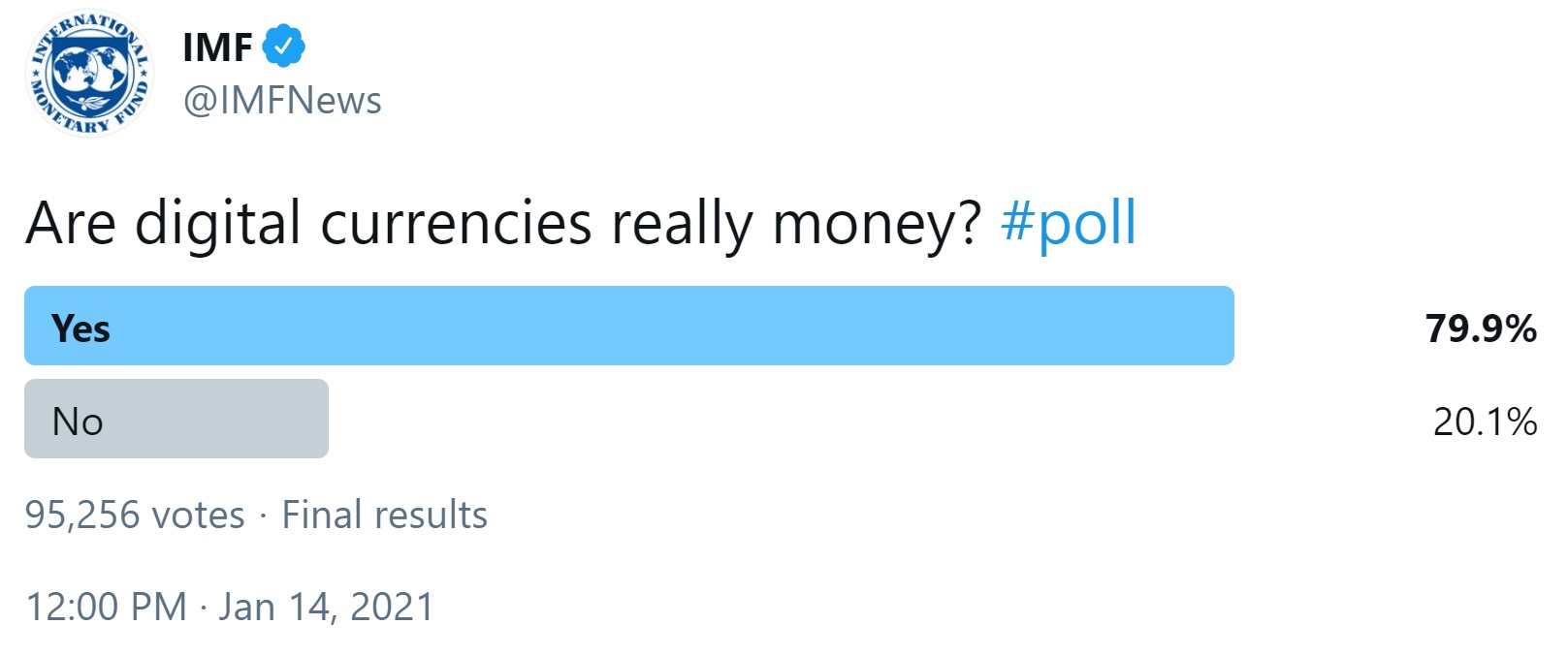
Researchers at the International Monetary Fund (IMF) have examined the central bank laws of 174 IMF members to answer the question of whether a digital currency is really money. They found that of all the central banks surveyed, only about 23%, or 40 central banks, are “legally authorized to issue digital currencies”.
IMF is investigating whether digital currency is money
The IMF published a blog post on Thursday investigating whether digital money is really money in the legal sense. The position was written by Catalina Margulis, an advisory advisor in the Finance and Tax Law Department of the IMF’s Legal Department, and Arthur Rossi, a research fellow in the same department.
The authors expressed their own views, initially stating that “almost 80 percent of the world’s central banks are either not allowed to issue digital currency under their existing laws or the legal framework is not clear.” They continued:
To help countries make this assessment, we reviewed the central bank laws of 174 IMF members … and found that only about 40 are legally allowed to issue digital currency.
Before this blog post was published, the IMF conducted a survey on Twitter asking people if they thought digital currencies were really money. Of 95,256 votes collected, 79.9% said yes.

What qualifies as currency
The IMF researchers stated: “To legally qualify as a currency, a means of payment must be considered as such under the laws of the country and denominated in its official currency unit. A currency usually has legal tender status, which means that debtors can meet their obligations by transferring them to creditors. “You detailed:
Therefore, legal tender status is usually only given to tender that is easily received and used by the majority of the population. That is why banknotes and coins are the most common form of currency.
The authors determined that a digital infrastructure – laptops, smartphones, connectivity – must first be available in order to use digital currencies. However, they pointed out that “Governments cannot impose on their citizens to have it, so it might be difficult to give legal tender status to a central bank digital tool.”
IMF staff also mentioned some legal issues raised by the creation of central bank digital currencies (CBDCs). Problem areas include “tax, property, contract and bankruptcy law; Payment systems; Data protection and privacy; basically to prevent money laundering and terrorist financing, ”the IMF researchers described.
In conclusion, the researchers concluded that “achieving full currency status without being legal tender could be just as difficult,” they pointed out:
Much of the currency that is widely used in advanced economies is neither legal tender nor currency.
Do you think digital currencies are money? Let us know in the comments below.
Tags in this story
CBDC, central banks, currency, digital currencies, digital currency money, digital money, IMF, digital currency issuance, legal tender, legal tender, money
Photo credit: Shutterstock, Pixabay, Wiki Commons, IMF, Twitter
Disclaimer of liability: This article is for informational purposes only. It is not a direct offer or an invitation to submit an offer to buy or sell, or a recommendation or approval of products, services or companies. Bitcoin.com does not provide investment, tax, legal, or accounting advice. Neither the company nor the author are directly or indirectly responsible for any damage or loss caused or allegedly caused by or in connection with the use of or reliance on any content, goods or services mentioned in this article.
